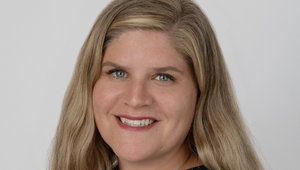
More than a Third of People in Canada Feel Financial Shame, But No One Is Talking about It

Canada’s largest federal financial cooperative, Coast Capital, has released a new study exploring financial shame and its impacts on people’s ability to address the factors keeping them from improving their financial reality.
The study, Breaking the Cycle of Financial Shame, commissioned by the credit union and hosted on the Angus Reid Forum, found that more than a third of Canadians (36%) say they feel shame when it comes to their financial situation and that three out of four Canadians (74%) think about their financial situation far more often than they speak about it.
And it isn’t just people’s financial wellbeing that shame is impacting. Half of Canadians (51%) indicated that money is impacting their mental and emotional wellbeing, with the vast majority feeling either anxious (38%) or stressed (38%) about their financial situations.
“Many of us in Canada – across different income levels – are struggling to keep up with inflation, rising costs of living and record debt levels,” said Aimee Chow, director of retail and investments, Coast Capital. “This study illuminates that the shame we feel around our finances is also holding us back. The silence that shame imposes is preventing us from having important conversations and actively taking steps within our control that can unlock financial opportunities and improve our situation.”
Breaking the Cycle of Financial Shame: Key Insights
The data illuminated two trends when it comes to the power of financial shame and its impact on our behaviour and relationships:

The leading Canadian expert in financial recovery and psychological and behavioural factors driving our relationship with money, Chantel Chapman, who supported the development of the study, added, “While the findings are very telling about the current economic reality in the country, I am not surprised by the insights. In my work, I see financial shame as a common significant barrier to financial recovery and empowerment. Financial shame isolates us and can lead to avoidance patterns, making financial literacy, support, and pathways to action inaccessible. These avoidant behaviours often lead to worse financial outcomes and the cycle of shame continues.”
Chantel goes on to say, “To alleviate the burden of financial shame and break out of feelings of isolation, we need to feel connection and belonging. Naming this experience is a starting intervention to overcoming shame, and with this survey, we can see ourselves in the data and know that we are not alone.”
As a social purpose financial cooperative and Certified B Corporation®, Coast Capital is sparking a conversation on a growing but silent epidemic in a first step towards breaking the stigma and, ultimately, the financial shame cycle to help more people in Canada build a better financial future.
Learn more about the report, the warning signs of the shame cycle and advice on how to take back your financial power here.
Read more here.















